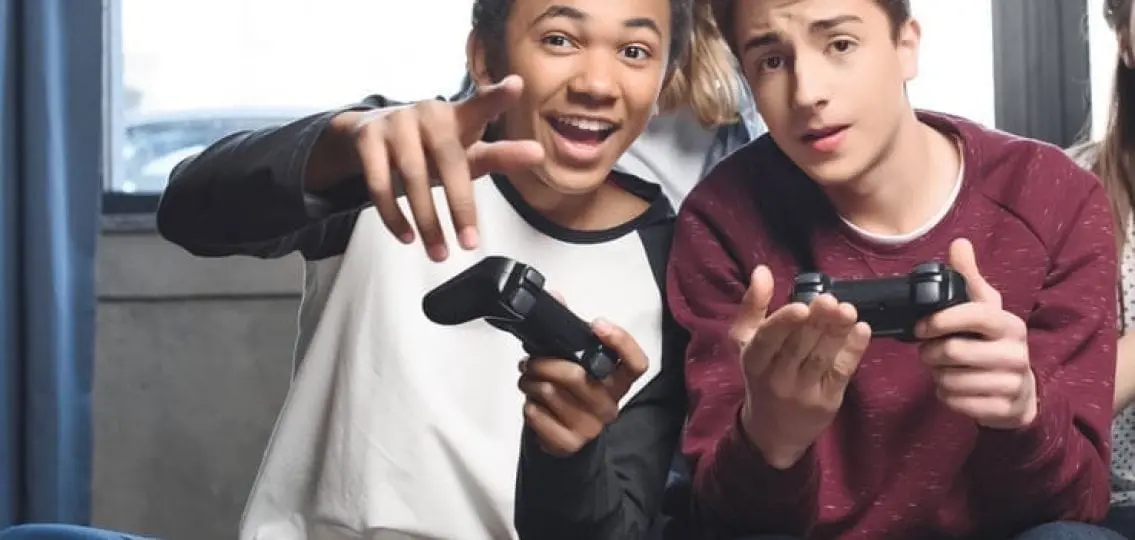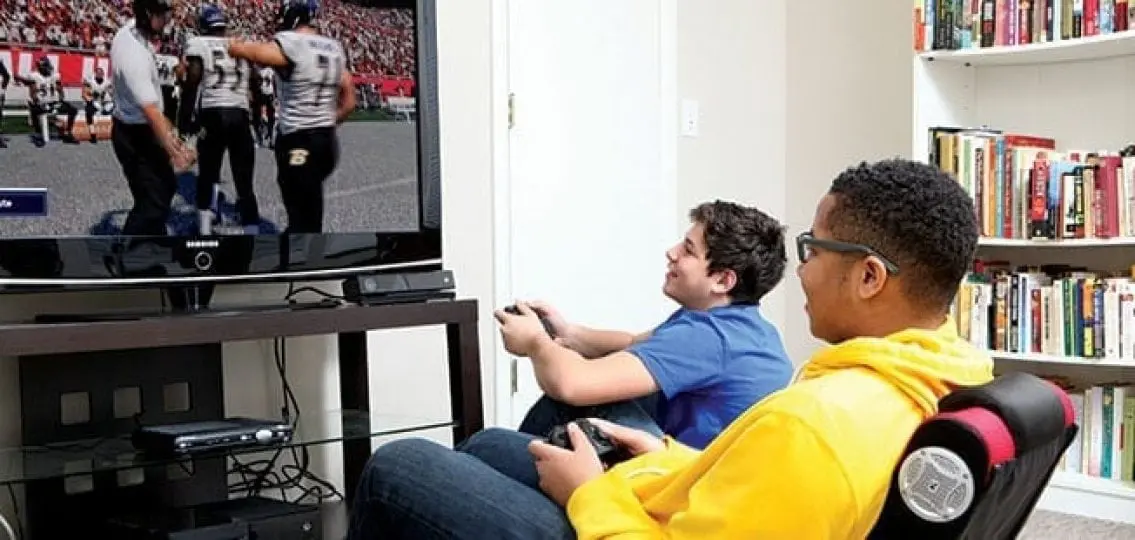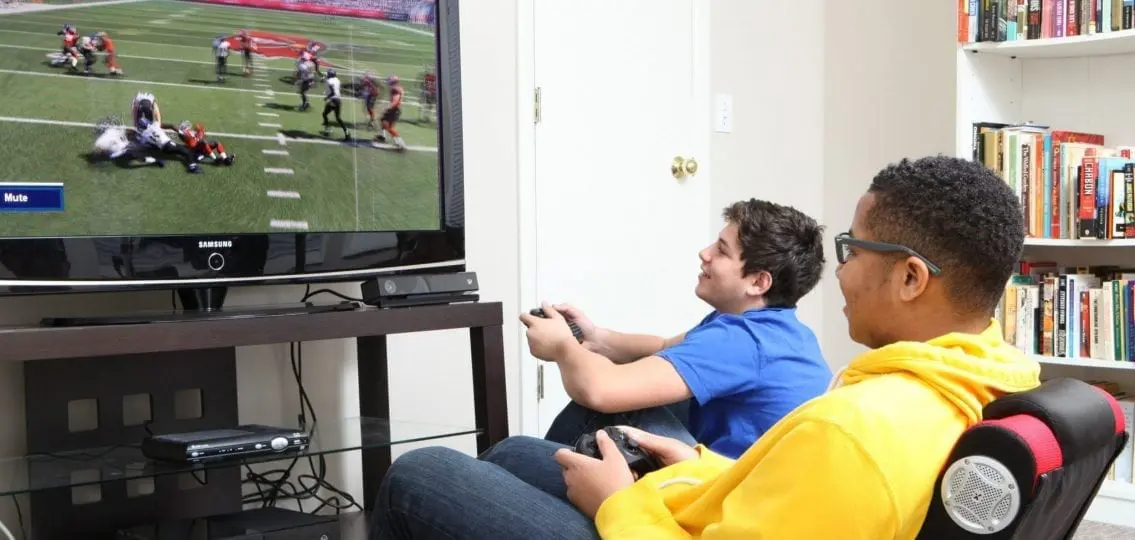As parents we have been taught (understandably) to fear video games and their effects on our teenagers. But can these games make our teenagers better people? In a word: Yes.

A few weeks ago, I got a chance to interview three gaming experts for a new PBS show called iQ:smartparent. It’s airing here in Pittsburgh. I asked these experts to offer guidance about what games I should let my kids play, how often, and how video games affect children and teens. Here’s what I learned:
Our first expert was Dr. Brian Primack, an associate professor of medicine at University of Pittsburgh. He’s been researching the impact of media on children for years and got us started with some of the dangers games can pose. These include aggression, desensitization, isolation, and fear. Certain games increase the rates of all of these in teenagers and adults. So what should we keep in mind?
Some Of The Dangers Of Video Games
1. First person shooter games are the most dangerous.
These are games in which the player is creating at least some of the violence. Playing this role too often or for too long increases the chances that a person will react to conflict with aggression.
2. Witnessing a lot of violence desensitizes us to pain and suffering.
So even if our character in the game is trying to avoid the fires or bombs or mobs, just watching it happen on the screen (in games or movies or cartoons) changes the way we think about violence, makes it seem like “not a big deal,” even when we see it in real life. And when the violence is accompanied by humor, that desensitization gets a lot worse, making animation a major offender.
3. Playing too much screen can lead to isolation.
However, this is much less of a problem if the game requires collaboration with other players (even ones we’ve never met).
4. Stressful situations in the virtual world can increase anxiety in the real world.
This is not true for everyone, so you have to know your child.
Luckily, games that meet these “negative criteria” are a small percentage of the games available.
Now onto the upsides.
Benefits Of Video Games
Jesse Schell of Schell Games (and formerly Disney Imagineering) and Nikki Navta of Zulama.com told the audience that the skills teenagers build while gaming can go far beyond excelling at the game.
Specifically, games give parents an opportunity to look critically at their teens: You might address a skill or characteristic that your teenager needs to improve. Search for games that offer challenges that he is ready to embrace in order to build that new skill.
Do you wish your teen had more resilience? Games can help kids think of themselves as problem-solvers because certain games force kids to find solutions. Any game with levels, where it is possible to “lose,” encourages tweens and teens to persevere – to hit “play again.” Your teenager will see that he can keep improving, even if he hasn’t yet mastered a skill. This is the definition of resilience!
Do you want to raise someone who is a great team player? Consider joining a community that works collaboratively, like Minecraft, and include your teen!
Are you interested in a teen who can handle complex ethical dilemmas? For this, Schell suggested World of Warcraft together or an historical conflict game.
What I learned from this program is that it’s possible to have a positive outlook when it comes to teens and video games. When we recognize that our teens will use gaming as a social or entertainment focus for years to come, we can compare video games to the way we think about food. Food and media are not always bad – or good – but amount and content matters tremendously.

If you are not sure of the content or appropriateness of a game for your family, check out Common Sense Media and see what they have to say; it’s a great resource.



